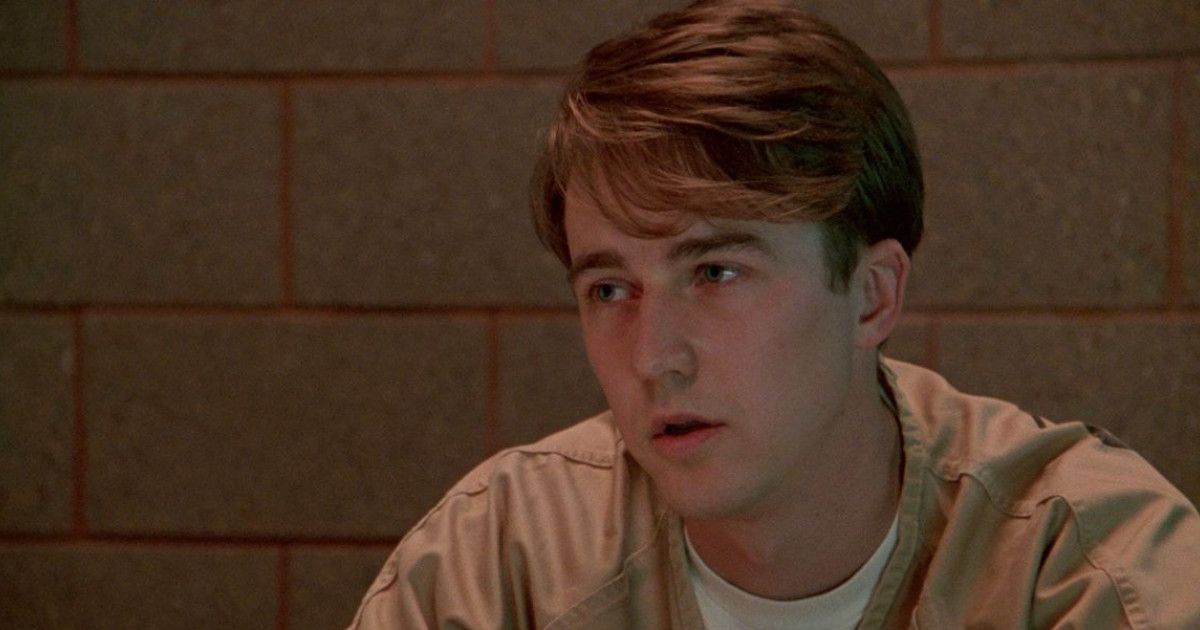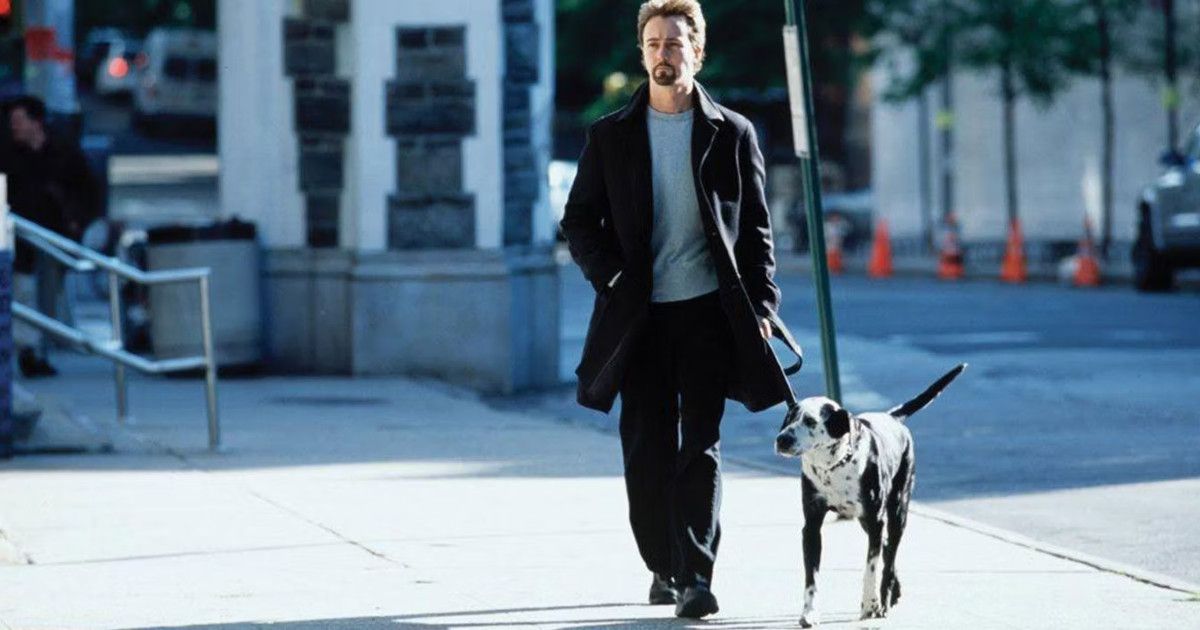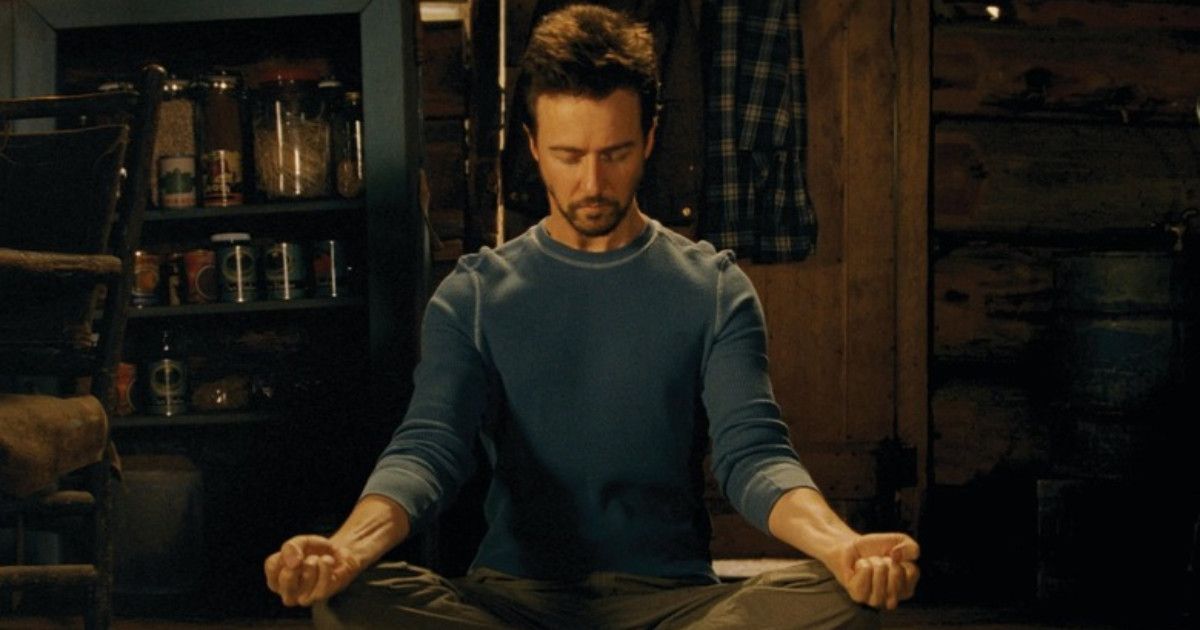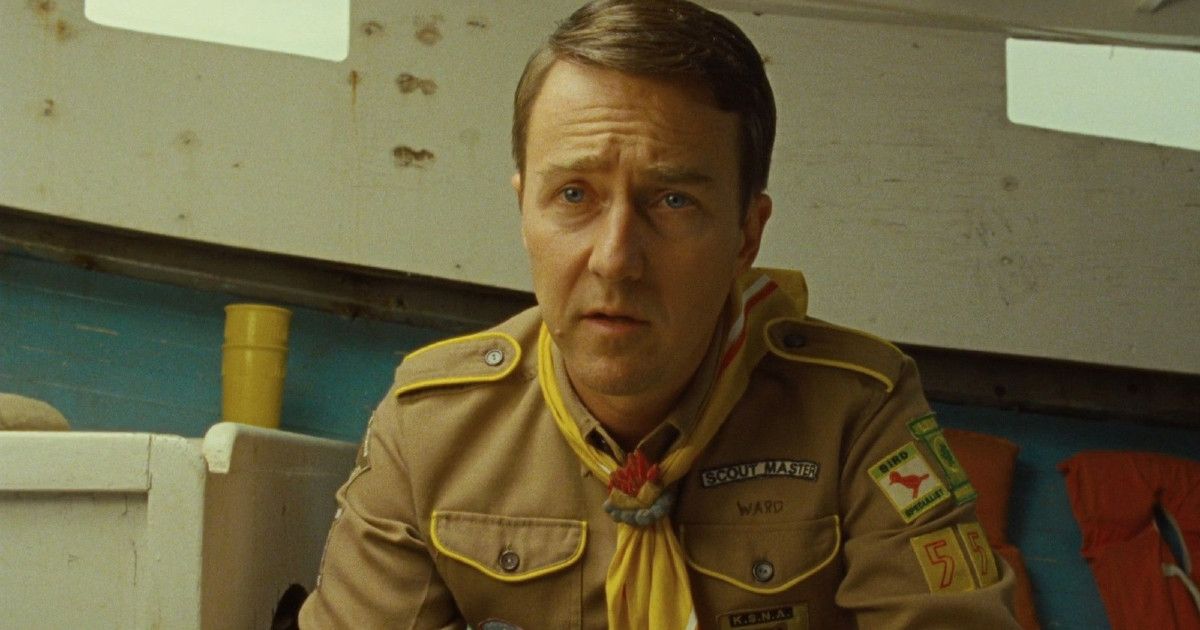After bursting onto the movie scene the mid-90s, Edward Norton became one of the hottest stars Hollywood had to offer. Right out of the gate, he was nominated for an Academy Award (one for Best Supporting Actor) for his debut efforts in Primal Fear (1996). He then starred in the critical hit American History X (1998), which launched him into the acting stratosphere.
He’s since worked with some big-name directors like David Fincher, Spike Lee, and Wes Anderson. Plus, he’s worked under those filmmakers alongside some of the most renowned stars to ever grace the silver screen. But following a series of roles in cult classics and commercial successes alike, he began a bit of a downward slope toward the mid-2000s.
Various reasons can be attributed to this decline, but there is one particular incident that Norton’s contemporaries often look back on when considering him for a given project. In other words, he’s viewed by other actors (and plenty of directors, too) as difficult to work with, often preferring his own way to the ideas of others.
This revolves for the most part around the changing of scripts — and off the bat, this may seem like an anomaly for an actor. It is worth noting, though, that Norton now has a relatively deep history as a behind-the-scenes creative, writing and directing a couple of different projects throughout his career. Still, though: his antics rubbed others the wrong way, and resulted in a five-year time span where fans were unsure if Norton would ever return to form.
Of course, he eventually would, landing several notable roles throughout the 2010s that reestablished his name as one of the biggest that Hollywood has to offer. He starred or appeared in a string of successes that rivaled his streak of hits from the late 1990s to the early 2000s. That was prime Norton for many fans, and considering the caliber of his projects from that period, it makes sense in the end.
The Start of Norton’s Career
After showing a talent agent some auditions of a few disparate Shakespeare works, Edward Norton landed a role in the noir drama Primal Fear (1996). It was as Aaron Stampler, an altar boy who is charged with killing a Roman Catholic archbishop. He was selected over two thousand other prospects, and clearly, casting made the right choice. In this his on-screen debut, Norton was nominated at the Academy Awards for Best Supporting Actor.
From there, it was off to the races. In that same year he was in Woody Allen’s musical Everyone Says I Love You (1996) and the biographical drama The People vs. Larry Flynt (1996). Both projects received widespread acclaim from critics, and helped bolster Norton as the hottest breakthrough star of the year.
A couple of years later, he has his first starring role in American History X (1998). He once again garnered widespread critical acclaim — including an Academy Award nomination for Best Actor. He came up short, but it is still considered among the greatest performances of his career — if not, the single best. And in that same year, he co-starred alongside Matt Damon in the cult classic gambling movie Rounders (1998).
And, speaking of cult classics: the final film worth noting here is Fight Club (1999), directed by David Fincher and adapted from Chuck Palahniuk’s novel of the same name from 1996. This is one of the most well-regarded performances of his career from a perspective of the fans. Which isn’t to say it wasn’t well-acclaimed, or anything. Quite the opposite in fact. The film divided critics upon release, but none of them had negative things to say about the acting efforts in particular.
Of course, that has gone down as one of Norton’s definitive roles, if not the first one the general audience member thinks of when considering his career. But at the end of the decade to begin the 2000s, he moved out of his comfort zone of independent productions and branched out to projects with greater commercial inclinations.
Further Fame at the Turn of the Century
To kick off the new century, Edward Norton made his directorial debut with a project called Keeping the Faith (2000). He costarred in the film alongside Ben Stiller and Jenna Elfman, and together the trio raked in $60 million on a $30 million budget, and averaged a 69% on Rotten Tomatoes. Not too shabby. He then costarred alongside Robert De Niro in a heist film called The Score (2001) as a green thief and a professional one, respectively.
It received decent money in theaters, and holds a 73% approval rating on Rotten Tomatoes. And with a similar score of 75% was his next film of note, Frida (2002), in which he played Nelson Rockefeller. Directed by Julie Taymor, the script was actually penned by four different writers — and Norton took it upon himself to rewrite the script several times over. It went down as an uncredited screenwriting role.
He also appeared in Death to Smoochie (2002) from that year, but the two others truly worth noting are Red Dragon (2002) and 25th Hour (2002). The former was a prequel to both The Silence of the Lambs (1991) and Hannibal (2001), with Anthony Hopkins reprising his role as Hannibal Lecter. It received mixed reviews, and Norton’s performance wasn’t particularly noteworthy, or anything — but the project did become his highest-grossing up to that point, with over $200 million made in theaters.
And, as for 25th Hour (2002): it was written and directed by Spike Lee, adapted from a novel of the same name by David Benioff, and Norton played the lead. Though not the most famous of films, Norton’s performance as Monty Brogan was still highly revered. And in the following year, the young actor appeared in another heist film by a veteran director of the genre: The Italian Job (2003) by F. Gary Gray. It featured a star-studded cast on top of Norton, and also made great money at the box office.
He then starred in a couple of lesser-known flicks like Down in the Valley (2005), a neo-Western by David Jacobson, along with The Painted Veil (2006), an adaptation of W. Somerset Maugham’s novel of the same name from 1925. But there’s also The Illusionist (2006), directed by Neil Burger. It’s underrated in its own right, but with an Oscar nomination for Best Cinematography in tandem with $88 million accrued on a budget of $16.5 million, it’s undoubtedly more popular than both Down in the Valley and The Painted Veil.
After those roles, though, his career took an odd turn. One for the worst, some might say, as it resulted in being borderline blacklisted from well-known projects for nearly five years straight. He would eventually land on his feet, but the American actor’s career trajectory was looking rather dim for a while there compared to the bright heights he reached at the start.
Why He Disappeared
Throughout his years in front of the camera, Norton has gained quite the notoriety for his opposing creative views. At least, that’s one way to put it. His contemporaries will tell you he’s obnoxious, and that may just be true. It’s impossible to know what exactly goes down behind the scenes.
But one thing remains relatively certain: his antics on set of The Incredible Hulk (2008) largely led to him being shunned by a majority of his peers. He feared that the original script went too far away from the original source material of the comic books, and thus, he took it upon himself to commence multiple rewrites thereof throughout the film’s production.
He didn’t even take part in promotional efforts for the film’s cause, instead opting to participate in humanitarian activities in Africa. In tandem with conflicts over the script, this led many fans and pundits to speculate that Norton was at some sort of opposition with Marvel. And this theory was further bolstered when Norton was replaced as Bruce Banner in the Marvel Cinematic Universe by fellow American actor Mark Ruffalo.
Whether he was actually at war with the studio as a whole is still entirely up for debate, but again: his antics with the script meant many studios wanted nothing to do with him for several years to come. The Incredible Hulk of course released to great commercial success, but after that, he only appeared in three films over the next three years.
That may sound like an ordinary amount, but consider the fact that one of those was a cameo — in other words, he had next to no screen time with his role in The Invention of Lying (2009). And what’s more is that, despite delivering critically acclaimed performances, his other two films from this period — Leaves of Grass (2010) and Stone (2010) — both absolutely bombed at the box office.
Turning It All Around
After a hiatus in 2011, he returned to true form in 2012 with two films in particular: Moonrise Kingdom (2012) by Wes Anderson and The Bourne Legacy (2012) by Tony Gilroy. And although the latter was his highest-grossing project to-date with $276 million made worldwide, it was that collaboration with Anderson that truly sparked interest in Norton’s resurgence.
The two have worked together three times since with The Grand Budapest Hotel (2014), Isle of Dogs (2018), and The French Dispatch (2021), and each of those performances from Norton were highly revered. Although, it’s worth noting that his role in Isle of Dogs was of the vocal variety.
With Norton set to appear in Anderson’s upcoming installment Asteroid City (2023), the two don’t seem to be slowing down, either. And as one of the more fan-favorite duos of late, it’d be a shame if they stopped now. The other film truly worth noting here, however, is Birdman; or, The Unexpected Virtue of Ignorance (2014).
Directed by Alexandro Gonzales Iñárritu, Birdman tells the tale of a once-famous Hollywood actor who made it big by portraying a superhero called “Birdman”, and now, the actor has turned his sights to Broadway as he attempts to adapt a Raymond Carver short story to the stage.
It’s a truly intriguing premise, and within it Norton acted his heart out as an up-and-coming method actor named Mike Shiner. The role screamed to the Academy to finally give Norton another nomination, and the association actually listened. He received an Oscar nod for Best Supporting Actor, and although he came up short to J.K. Simmons in Whiplash (2014), it’s undoubtedly his best work of the century.
He then leant his vocal chops in animated films like Sausage Party (2016), The Guardian Brothers (2017), and the aforementioned Isle of Dogs before directing the second feature of his career: Motherless Brooklyn (2019). He wrote and starred in the project as well, and despite a star-studded supporting cast, the film failed to make waves in theaters.
It did garner decent reviews from critics, though — and even more revered was Glass Onion: A Knives Out Mystery (2022) by Rian Johnson. He plays Miles Bron in the mystery thriller sequel, and although this film also came up short financially, it was adored by fans and critics alike. As was Norton’s performance. It was just his his second appearance of the decade, though, and he only has one project on the horizon.
So, he still takes time off compared to his earlier years — particularly the early 2000s. He was far more active then, and his cut back can be attributed to the stunts he pulled with The Incredible Hulk. Since that went down, though, Norton has reestablished himself as a juggernaut of the industry. And with another Anderson collaboration Anderson in the works via Asteroid City, that trend could continue for years to come.





